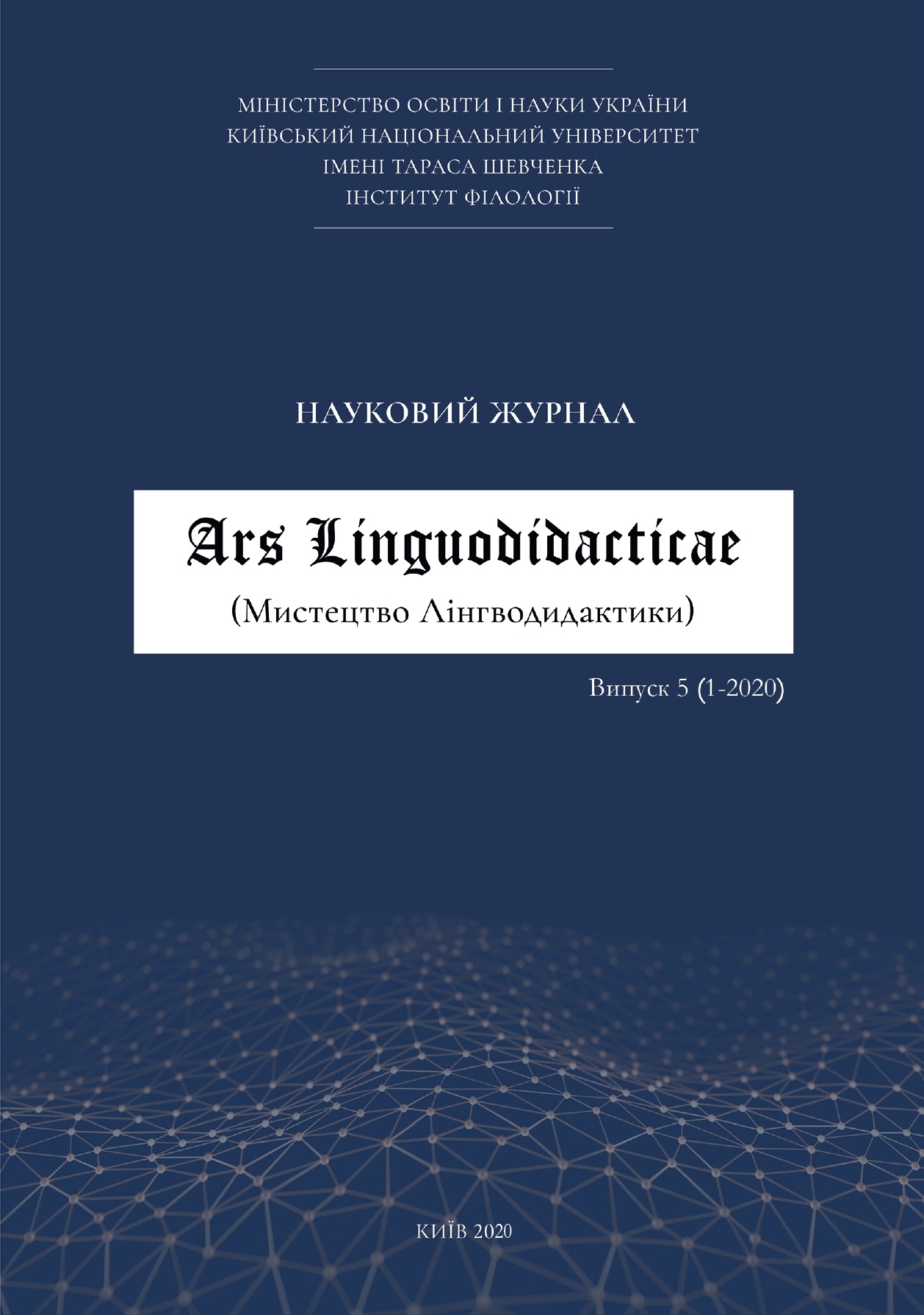PLURILINGUAL EDUCATION TODAY: A PERSPECTIVE OF TEACHING INTERCULTURAL COMPETENCE IN GERMAN AFTER ENGLISH TO STUDENT INTERPRETERS/ TRANSLATORS
DOI:
https://doi.org/10.17721/2663-0303.2020.5.05Abstract
With plurilingual and pluricultural competences enjoying ever rising status reflected in the documents of Council of Europe, the processes of learning second or third foreign languages are in the focus of researchers’ scrutiny. Since German is most frequently taught after English (GaE) both in Europe and Ukraine, German language pedagogy promotes more effective intercultural learning of German.
The paper aims to analyze approaches to teaching GaE offered by German applied linguists: structure of intercultural competence (ICC), objectives and methods of teaching ICC, with a special focus on the professional needs and ways to build ICC of student interpreters/translators.
The critical analysis conducted provides evidence of a shift in teaching ICC as acquiring knowledge about “capital-letter” culture towards mastering pragmatics of intercultural interaction. The most common methods used to achieve this goal are teams of students. Professional needs, learning background and specifics of translators’ cognitive processes are considered to maximize ICC learning of student interpreters/translators. Since an interpreter / translator is viewed as a mediator between representatives of different cultures, the author formulates prerequisites of building their ICC in communicative activities simulating real-life intercultural encounters.
The most accessible way of building ICC in Ukrainian schools of linguistics is a role-play. The author provides several examples of role plays, which appeared effective in her teaching practice, and calls for broadening the repertoire of methods employed.
Key words: plurilingual and pluricultural competences, German after English, building ICC of student interpreters/translators.
Downloads
Published
How to Cite
Issue
Section
License
Copyright (c) 2020 Ніна Воєводіна

This work is licensed under a Creative Commons Attribution-ShareAlike 4.0 International License.
This work is licensed under a Creative Commons Attribution-NonCommercial 4.0 International License.
Copyright policy according to the terms of the license: Creative Commons "Attribution-NonCommercial" 4.0 International (CC BY-NC 4.0).
Authors who publish their articles in "Ars Linguodidacticae" (Open Access Journal) retain the following rights:
- The authors retain the copyright of their article and grant the Ars Linguodidacticae journal the right to first publish the manuscript of their article under the Creative Commons (CC BY-NC 4.0) Attribution License, which allows others to freely distribute the published work with mandatory reference to the author of the original work and first original publication in the Ars Linguodidacticae journal. An indication of the retention of the copyright of the work is provided on the title page of the article.
- The authors reserve the right to enter into separate contracts for the non-exclusive distribution of their article as published in Ars Linguodidacticae (e.g., placing the article in electronic libraries, archives and catalogs or publishing it as part of institute collections and monographs), provided that a full reference to the first original publication in Ars Linguodidacticae is given.
- The policy of the "Ars Linguodidacticae" journal allows and encourages authors to post a manuscript both before and during editorial processing, as this promotes productive scientific discussion and has a positive effect on the speed and dynamics of citing the article.
The editorial board reserves publishing rights to:
- the collated original articles and to the entire issue of the journal.
- the design of the journal and original illustrative and supplementary materials.
- the reprint reprints of the Journal in printed and electronic form.
The copyright policy is carried out according to the terms of the license: Creative Commons "Attribution-NonCommercial" 4.0 International (CC BY-NC 4.0).
For more information, please read the full text of the CC BY-NC 4.0 Public License.
Creative Commons Attribution-NonCommercial 4.0 International License.


